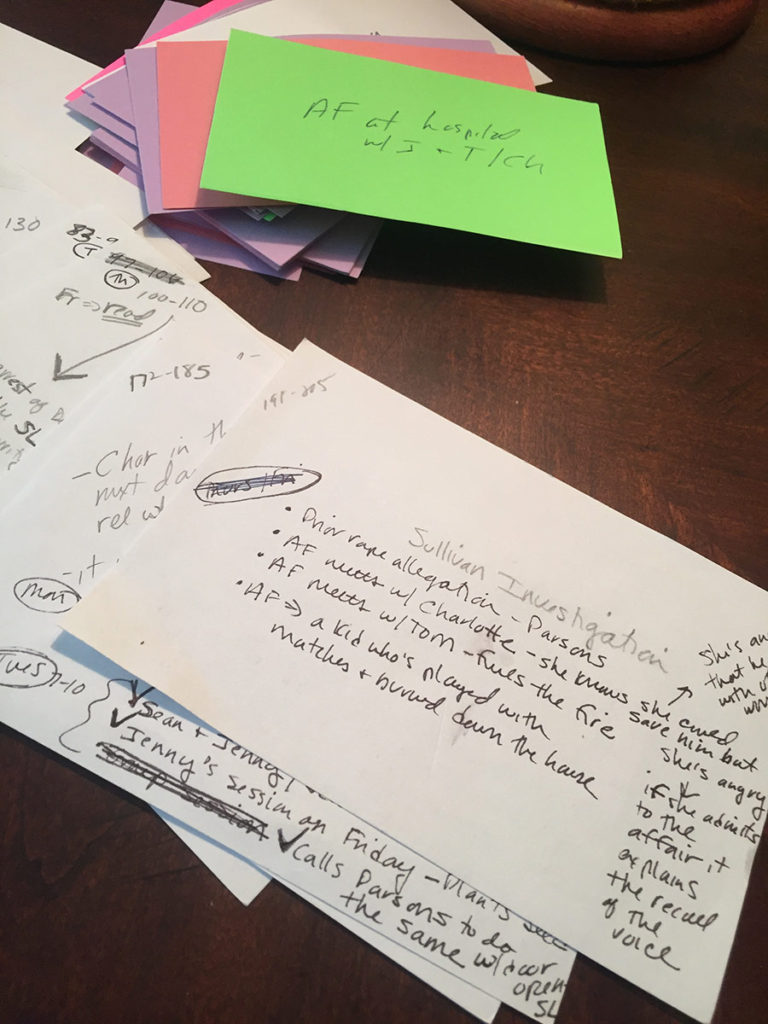All Is Not Forgotten
NOW IN PAPERBACK
In the small, affluent town of Fairview, Connecticut, everything seems picture perfect.
Until one night when young Jenny Kramer is attacked at a local party. In the hours immediately after, she is given a controversial drug to medically erase her memory of the violent assault. But, in the weeks and months that follow, as she heals from her physical wounds, and with no factual recall of the attack, Jenny struggles with her raging emotional memory. Her father, Tom, becomes obsessed with his inability to find her attacker and seek justice while her mother, Charlotte, prefers to pretend this horrific event did not touch her perfect country club world.
As they seek help for their daughter, the fault lines within their marriage and their close-knit community emerge from the shadows where they have been hidden for years, and the relentless quest to find the monster who invaded their town–or perhaps lives among them–drive this psychological thriller to a shocking and unexpected conclusion.
USA Today bestseller
The Sunday Times (UK) bestseller
PRAISE
“Deeply intriguing and provocative, All is Not Forgotten explores intricate family relationships against the backdrop of searing suspense. A novel filled with twists, surprises, and a plot that keeps you guessing. All is Not Forgotten is not to be missed.”
—Karin Slaughter, New York Times bestselling author of Pretty Girls
“Captivating and bold, Wendy Walker takes an incisive look at the importance of memory and the power of manipulation. Fascinating and at times shocking, All Is Not Forgotten is one book you won’t easily forget. Not to be missed!”
—Mary Kubica, New York Times bestselling author of The Good Girl
“An assured, powerful, polished novel that blends suspense and rich family drama. Built on a fascinating scientific premise and laced with moral complexity, it is, in a word, unforgettable.”
—William Landay, New York Times bestselling author of Defending Jacob
Listen to an Audio Excerpt
Narrated by award-winning actor Dylan Baker
(“The Good Wife,” “The Americans,” “Damages”)
BEHIND THE BOOK

As a writer, I’m always looking for real life events that would make a good story. Back in 2010, I came across an article in the New York Times about the use of morphine to treat PTSD, and how its use might spread from soldiers wounded in the field to survivors of other traumas, like rape. When I finally decided to use this in a novel, I knew it would make an intriguing psychological thriller.
I wrote All is Not Forgotten in the spring of 2015, and by that time the research into memory reconsolidation had exploded. At the core of this research was the finding that memories are like files on a computer – they can be recalled and then altered, or perhaps even erased entirely.
Now, a range of PTSD therapies are being developed which utilize this new understanding about how memory works. Within the first few hours after an event, drugs can be administered to try and block the memory entirely. By interrupting the stabilization process which turns a short term memory into a long term memory, the short term memory can (possibly) be erased. Alternatively, pain medication like morphine or propofol can be administered so the emotional attachment to the memory is lessened. Theoretically, a survivor could remember the event but not have any emotional reaction. For survivors whose traumas have already been stabilized into long term memory, the same treatments are given in an attempt to reconsolidate that memory either factually, or by lessening the emotional attachment. As the person recalls the painful memory, the drug or other method is used so that the memory becomes altered before it is re-filed – just like changing a computer file before hitting the save button.
When I thought about using this in a novel, I was drawn not only to the science, but to the moral and legal implications if these treatments were to be used on survivors of crime. The choice between justice and emotional pain, for example, fascinated me. I also wondered about the ability to truly erase the emotional implications of a traumatic event. As a mother, I had come across information about brain development in children and how early traumas can cause lasting emotional issues even if the child had no factual memory of a painful event (because the brain was not mature enough to store the memory). In those cases, the child can have unusual fears or phobias that do not have any causal relationship to the triggers. That made me wonder – even if we can pull out a painful memory, uncouple it from the emotional element and then return it to storage, does that emotional element really go away? Or does it live inside us, looking for a home, and provoking us at times or for reasons that make no logical sense?
Combining all of these theories and questions, I came up with the story of Jenny Kramer.
The next decade is going to bring groundbreaking changes to the way we see our memories, and the treatments available for PTSD, addiction and other disorders like anxiety and OCD. And like most scientific advancements, we will be faced with the legal and moral implications that arise.
When I tell people about this story, I always go back to the question that was in my mind back in 2010 – what would I choose, for myself or a loved one? Would I choose to remember? Or would I choose to forget?

